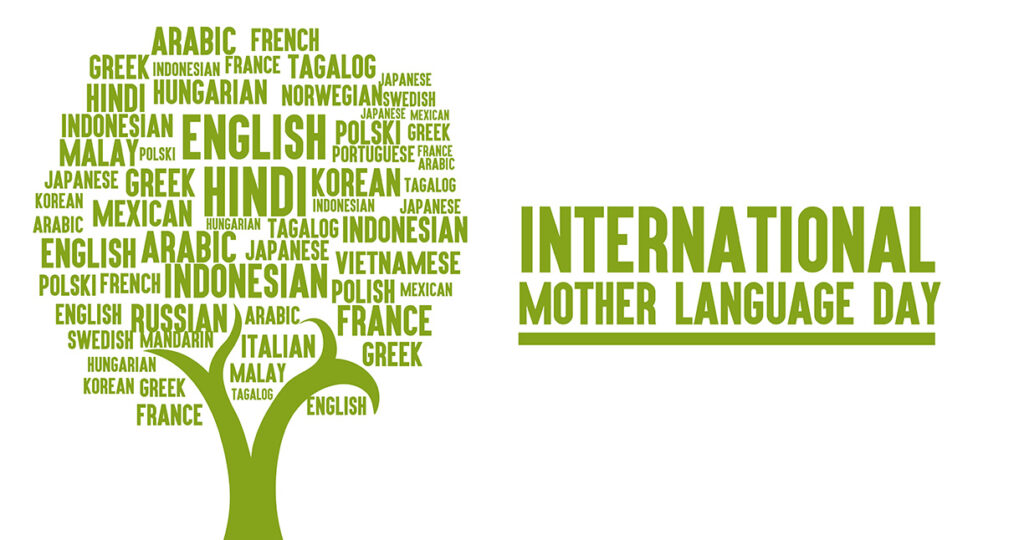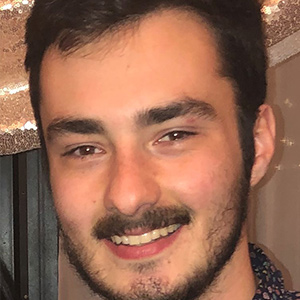International Mother Language Day

If you were to take a stroll down Main Street, what languages would you hear? Certainly English & Spanish, as would be expected in countless towns across the nation. But Manchester specifically? You may hear Bengali and Cantonese, Polish and French, Mandarin and Haitian, Vietnamese and German.
It is this powerful diversity of languages and peoples that speaks to the power of International Mother Language Day, a holiday observed annually on February 21st that aims to promote awareness of cultural and linguistic diversity and to celebrate our world’s multicultural communities. International Mother Language Day has spread from its Eastern origin to all corners of the globe – you can find celebrations anywhere from Bangladesh to Germany to Greece, with annual celebrations taking place right here in Manchester.
Where does this annual observance stem from? Despite the often-celebratory nature of many modern International Mother Language Day celebrations, the holiday is rooted in a tragic past. International Mother Language Day was created to honor those who fought for the “Language Movement” and to create a more inclusive, authentic social and political structure.
This somber history was powerfully retold by HuffPost author Kareeda Kabir in “The History Behind International Mother Language Day:”
- 1948: The Language Movement officially began in Bangladesh in the wake of disagreements over what languages should be spoken at the Constituent Assembly. Dhirendranath Dutta’s proposal that Bangla should be considered as one of the primary languages at the Assembly, alongside English and Urdu, was struck down, serving as a catalyst for the blossoming Language Movement.
- 1952: In the wake of the murders of two Language Movement leaders, students at Dhaka University, Jaggonath College and Dhaka Medical College rebelled against Section 144 (which banned assemblies and demonstrations in the city of Dhaka), causing armed police to gather to stop their protests. Three students were ultimately killed and two others, including a nine-year-old boy, were seriously injured.
- 1956: An amendment was passed to include Bangla as an official language of Pakistan. The Shahid Minar was also installed to immortalize the fallen protesters from the 1952 rebellion.
- 2000: On February 21, the United Nations declared February 21 International Mother Language Day to honor those who died for the movement and to “promote linguistic and cultural diversity and multilingualism.”
- 2024: Today, International Mother Language Day, spearheaded by the United Nations, Unesco and grassroots organizations, is celebrated internationally.
Many readers may be wondering – how did a holiday with such specific cultural roots grow to become celebrated worldwide? Well, in our ever-connected world, language is key. It is how we educate, how we share traditions and cultures, how we express ourselves, how we prepare our future generations and leaders. By forgetting our mother languages, so do we forget everything that comes with and is a result of them.
“To foster sustainable development, learners must have access to education in their mother tongue and in other languages. It is through the mastery of the first language or mother tongue that the basic skills of reading, writing and numeracy are acquired. Local languages, especially minority and indigenous, transmit cultures, values and traditional knowledge, thus playing an important role in promoting sustainable futures,” the United Nations wrote.
For Manchester and Connecticut at large, International Mother Language Day is symbolic of the evolving demographics of our community. According to 2022 Census information, 18.7 percent of Manchester households speak a language other than English at home, a number that indicates a rise from past Census recordings. However, according to other local surveys, this number may be underrepresenting the diversity of languages in Manchester. The 2014-2018 American Community Survey estimated that 23% of Manchester residents 5 years and older spoke languages other than English in the home, keeping with state rates – Data USA estimated that 22.3% of Connecticut households spoke a language other than English.
Based on these reports, nearly one in every four Connecticut households speaks a language other than English at home, which begs the question – what languages are being spoken? As of 2021, the most common non-English languages in Connecticut include Spanish (413k households), Portuguese (38k households) and Chinese (30k households). However, according to Data USA, “this does not consider the potential multilingual nature of households, but only the primary self-reported language spoken by all members of the household.”
What would our world look like if it was to become more homogenized, forgetting our cultures and traditions in favor of assimilation? Well, in places throughout our country and world at large, we have started to see this. This is where factors such as education and household language usage become ever more important – especially as the digitalization of our everyday lives makes it easier and easier to forget the cultural and social roots of our many varied communities.
“Today, 40% of the world’s population does not have access to education in a language they speak or understand. In some countries this figure rises to over 90%. Yet research shows that the use of learners’ own language(s) in schools provides a solid foundation for learning, boosts self-esteem and critical thinking skills, and opens the door for intergenerational learning, language revitalization, and the preservation of culture and intangible heritage,” Unesco wrote.
Let this year’s International Mother Language Day serve as a time of reflection – of both your own linguistic background & the particularly diverse linguistic and cultural history of Manchester itself. We all have a history to uncover and a story to tell, and what better time to do so than International Mother Language Day?
Like this article?
Leave a comment
About Author

James Costa is the Neighborhoods & Families Coordinator for the Department of Leisure, Family, and Recreation. He began working with the division during his sophomore year at Manchester High School, and he is now a UConn graduate with degrees in Journalism & Film Studies.
Fun Fact #1: I won my car in a raffle during Manchester High School’s Project Graduation.
Fun Fact #2: My all-time favorite movies are All That Heaven Allows, Punch-Drunk Love & Twin Peaks: The Return.
